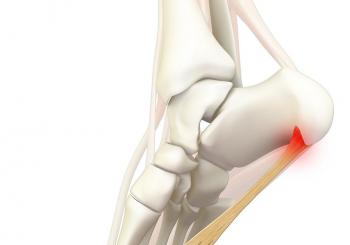
Everyone needs salt for fluid balance and muscle and nerve function. But too much salt is bad for us, we hear. So how much do we need? The human body regulates how much sodium it contains. If levels are too high, we get thirsty and drink, and the kidneys speed up the process of getting rid of it.Too much sodium has been linked to kidney stones, high blood pressure, and cardiovascular disease. Too little sodium can lead to hyponatremia, and symptoms of dizziness, confusion, muscle twitches and seizures. Most Americans consume too much salt and sodium, due to a high intake of processed, restaurant, and convenience foods. How far should we go in cutting out salt? What we know as salt is really sodium chloride. It is 40 percent sodium and the rest is chlorine.
Fast facts about salt
- The body needs salt, but too much or too little can cause problems.
- Sodium makes up 40 percent of salt. If a food label lists sodium instead of salt, multiply the answer by 2.5 for an accurate picture of the salt content.
- Most Americans take in too much salt, and 75 percent of it is hidden in processed and packaged food.
- The American Heart Association (AHA) recommend a maximum intake of no more than 2.3 grams (g) or 2,300 milligrams (mg) of sodium a day, or around 1 teaspoon, and preferably no more than 1,500 mg.
Effects
The body uses sodium to maintain fluid levels. A balance of fluid and sodium is necessary for the health of the heart, liver, and kidneys. It regulates blood fluids and prevents low blood pressure .
Too little salt
Low sodium levels can result if there is too much fluid in the body, for example, because of fluid retention. Diuretics are given in this case, to reduce fluid retention.
Other causes of low sodium in the body include:
- Addison disease
- a blockage in the small intestine
- diarrhea and vomiting
- an underactive thyroid
- heart failure
- drinking too much water
- burns
If sodium levels fall in the blood, this affects brain activity. The person may feel sluggish and lethargic. They may experience muscle twitches, followed by seizures, a loss of consciousness, coma, and death. If sodium levels fall quickly, this may happen very fast.
In older people, symptoms can be severe.
One study found that when rats were deprived of sodium, they kept away from activities that they normally enjoyed. The researchers suggested, therefore, that sodium could act as an antidepressant.
Too much salt
Excess sodium intake has been linked to health problems, such as osteoporosis, kidney disease, and hypertension, or high blood pressure, which can lead to cardiovascular disease and stroke.
The American Heart Association (AHA) explain that when there is too much sodium in the blood, it “pulls more water into the bloodstream.” As the volume of blood increases, the heart has to work harder to pump it around the body. In time, this can stretch the walls of the blood vessels, making them more susceptible to damage.
High blood pressure also contributes to the buildup of plaque in the arteries, leading to a greater risk of stroke and heart disease, among other problems.
The AHA urge people to consume more potassium at the same time as reducing their sodium intake. Potassium is believed to lessen the negative effects of sodium.
Sodium has also been shown Trusted Source to overstimulate the immune system, suggesting a link with autoimmune diseases such as lupus, multiple sclerosis, allergies, and other conditions.
Researchers have found that children who consume salty foods are more likely. to have a sugary drink with it. The combination could increase the risk of obesity.




